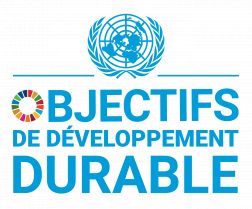News
Open access Publication "Pattern languages as a design tool to tackle wicked problems in sustainability science" in the transdiciplinary journal Gaia is out now !!!
This publication is part of the outcomes of the workshops cycle held in 2019-2020 on Sustainablity science and SDGs interactions
To make such sustainability science discussions successful, we propose a pattern language approach. It can be used as a practical step-by-step process to guide interdisciplinary collaboration between researchers and to facilitate transdisciplinary interactions between the academic and non-academic worlds. The patterns are documented and freely accessible online in the Sustainable Science Pattern database.
This publication is part of the outcomes of the workshops cycle held in 2019-2020 on Sustainablity science and SDGs interactions
To make such sustainability science discussions successful, we propose a pattern language approach. It can be used as a practical step-by-step process to guide interdisciplinary collaboration between researchers and to facilitate transdisciplinary interactions between the academic and non-academic worlds. The patterns are documented and freely accessible online in the Sustainable Science Pattern database.
Le champ disciplinaire de la Sustainability Science, qui a émergé ces dix dernières années, promeut les approches interdisciplinaires et la co-construction de recherche à fort impact sociétal guidée par le besoin de solutions à apporter face aux défis environnementaux et sociétaux.
Il est ainsi évoqué dans les conclusions du dernier rapport GSDR, comme faisant partie des solutions à favoriser pour maximiser l’impact des investissements dans la recherche pour l'atteinte des ODDs.
Ce site présente les différents ingrédients - Pattern - utilisés lors d'un cycle d’ateliers transdiciplinaires et les met à disposition pour toutes initiatives ou tout collectif souhaitant travailler de manière participative ou collaborative.
Vous êtes tous et toutes invités à contribuer et à proposer de nouveaux "patterns" et à consolider les existants !
Il est ainsi évoqué dans les conclusions du dernier rapport GSDR, comme faisant partie des solutions à favoriser pour maximiser l’impact des investissements dans la recherche pour l'atteinte des ODDs.
Ce site présente les différents ingrédients - Pattern - utilisés lors d'un cycle d’ateliers transdiciplinaires et les met à disposition pour toutes initiatives ou tout collectif souhaitant travailler de manière participative ou collaborative.
Vous êtes tous et toutes invités à contribuer et à proposer de nouveaux "patterns" et à consolider les existants !
Pour contribuer pleinement à la consolidation de ce champ scientifique, l'IRD a initié un cycle d’ateliers transdiciplinaires axés sur les sciences de la durabilité.
L'objectif de ce cycle était de définir une méthodologie de travail et des outils adéquats pour la mise en œuvre de la « Sustainability Science » - Quelle Science pour les ODDs - correspondant aux spécificités des Sud et de la recherche scientifique.
Prévu dans des formats multi acteurs (usagers, décideurs, scientifiques...) et multi-niveau (local, national régional international), ces ateliers ont permis un débat sur la cohabitation des sciences et savoirs et sur les approches pour atteindre les ODDs et traiter les interactions entre leurs différentes cibles.
Il s’agissait avec toutes les parties prenantes de co-construire un agenda d’actions pour déployer la science de la durabilité pour consolider l’atteinte des ODDs.
De nombreux "ingrédients" ont été déployés, utilisés et adaptés lors de ces 4 ateliers. Cette collection de "Pattern" consituent une base pour toutes initiatives ou tous collectifs souhaitant travailler de manière participative ou collaborative.
Vous êtes tous et toutes invités à contribuer et à proposer de nouveaux "patterns" et à consolider les existants !
Sustainability Science, as a scientific field, has emerged over the last ten years. It promotes interdisciplinary and demand driven approaches and co-construction of research to create and apply knowledge in support of decision making to face environmental and societal challenges.
It is thus mentioned in the conclusions of the last GSDR report, as part of the solutions to be fostered in order to maximize the impact of research investments for SDGs achievement.
This site present the different patterns used during transdisciplinary workshops and put them at disposal for any initiative or collective wishing to work in a participative or collaborative way
You are all invited to propose new patterns and consolidate existing ones.
It is thus mentioned in the conclusions of the last GSDR report, as part of the solutions to be fostered in order to maximize the impact of research investments for SDGs achievement.
This site present the different patterns used during transdisciplinary workshops and put them at disposal for any initiative or collective wishing to work in a participative or collaborative way
You are all invited to propose new patterns and consolidate existing ones.
In order to fully contribute to the consolidation of this scientific field, IRD initiated a cycle of transdisciplinary workshops focusing on sustainability sciences.
The objective of this cycle was to define working methodologies and adequate tools around the implementation of "Sustainability Science" - What Science for the SDGs - corresponding to the specificities of the South and scientific research.
Planned in multi-stakeholder (users, decision-makers, scientists...) and multi-level (local, national, regional, international) formats, these workshops enabled the debate on the cohabitation of science and knowledge and on approaches to reach SDGs and to deal adequately with the interactions between their different targets.
It was a way to build with all stakeholders an agenda of actions to promote sustainability science as a way to support the implementation of and achieve the SDGs.
Many "patterns" were used and adapted during these 4 workshops. This collection of "Patterns" constitutes a basis for any initiative or collective wishing to work in a participative or collaborative way.
You are all invited to propose new patterns and consolidate existing ones.
Retrouvez Les résultats des ateliers...
Les Ateliers
Atelier Chercheurs Planète IRD Atelier Consommation Production Durable Atelier Santé Environnement Climat Atelier Ville DurableLes bases de données
La Carte des participants
Se connecter pour commenter.
Commentaires